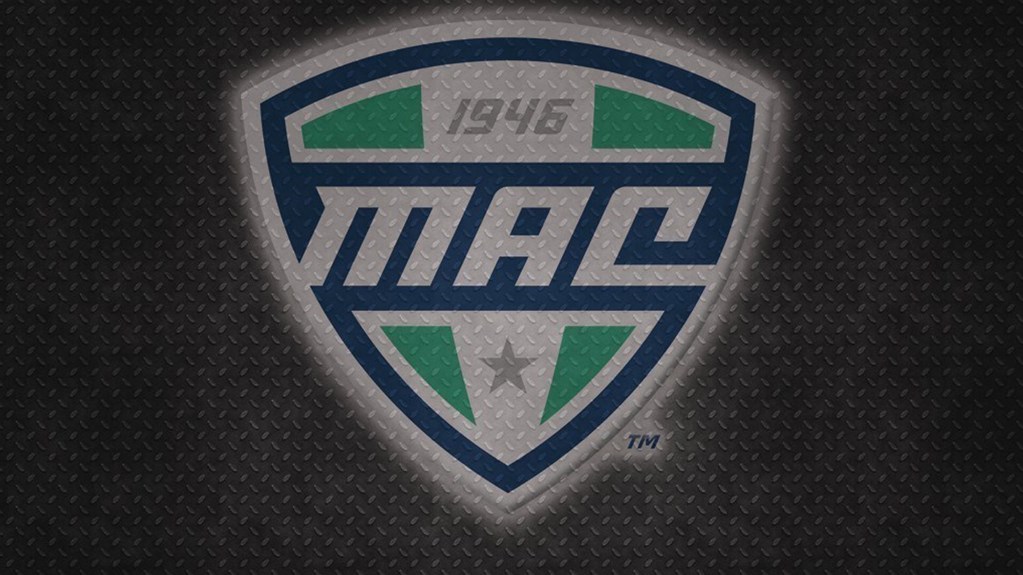The Mid-American Conference (MAC) has become the first FBS conference to cancel the fall sports season according to Stadium’s Brett McMurphy. The conference has not yet formally announced the decision, but the news is already sending shockwaves throughout college sports as another big ‘first’ is cleared.
The FBS, formerly known as 1-A, is the top level of college football. In non-football sports, FBS schools compete as part of the broader Division I of the NCAA.
The MAC was joined by the Big Sky Conference this week in canceling fall football, with the Big Sky officially postponing football competition until spring. While the Big Sky Conference does not sponsor swimming, 3 of its member institutions do. So far, winter sports have not been directly impacted by that conference’s decision, but if they are, swimming programs will follow the guidelines of the WAC, where all 3 Big Sky schools that sponsor women’s swimming participate.
Of the 10 FBS conferences (the so-called ‘Power 5’ and the ‘Group of 5’), the MAC is the first to make such a drastic move. The Ivy League, which like the Big Sky competes in the FCS, has also canceled all competition in the fall semester, including winter sports like swimming & diving. UConn, which is a Division I ‘independent’ competing in the FBS, has also canceled its fall football season.
Throughout the week, with a Saturday morning vote looming, reports have circulated that MAC power Northern Illinois and its president Lisa Freeman were pushing to cancel the season, with Freeman suggesting that her school couldn’t compete even if the MAC did build a schedule. NIU has won 4 of the last 10 MAC conference titles.
The MAC sponsors 7 of the 8 fall sports in Division I of the NCAA: men’s and women’s cross country, men’s and women’s soccer, women’s field hockey, football, and women’s volleyball. The conference does not sponsor water polo.
While Olympic sports, which often depend on revenue generated by football for their budgets, are concerned, much of the MAC’s football revenue was already lost when the Big Ten canceled its non-conference football schedules last month. The MAC had 11 games scheduled against Big Ten opponents and were scheduled to receive almost $11 million in payouts from those games along.
Other similar cancelations left the conference with just 5 total ‘money games,’ where power programs pay smaller schools to come play in their stadiums, remaining.
A clock has been set on the entire Division I of NCAA athletics to make a decision about whether to hold fall season sports in 2020. The NCAA last week said that the divisions have until August 21 to decide if fall 2020 championships would happen, with both Division II and Division III quickly making the decision to cancel.
In swimming, we’ve already seen one noteworthy swimmer, Addison Smith, leave Princeton of the Ivy League because of uncertainty over the season. If there continues to be differences between conferences within a division about whether to cancel or not, we could see a flood of transfers of top athletes.
The MAC sponsors both a men’s and women’s swimming & diving championship. Among other cost-cutting moves, the conference early in the pandemic announced that they would reduce next season’s swimming & diving championship from 4 days to 3.
With 5 men’s teams and 8 women’s teams in the conference, the reduction of 1 day of travel would be around 140 nights in a hotel room (for double occupancy) or around 70 nights (for quadruple occupancy) across all member schools.
Men’s swimming & diving programs:
- Miami (OH)
- Ball State
- Evansville
- Southern Illinois
- Missouri State
Women’s swimming and diving programs:
- Akron
- Ball State
- Bowling Green
- Buffalo
- Eastern Michigan
- Miami (OH)
- Ohio
- Toledo
The Akron women won last year’s MAC Conference Championship meet ahead of Buffalo, while Missouri State slid past Miami on the men’s side. The conference didn’t have any swimmers or divers qualified for the NCAA Championships this season, which were eventually cancelled, though 14 divers earned All-America honors. The conference is located in Zone C of the NCAA zone diving qualifying system; as the only zone that didn’t complete qualifying, the CSCAA awarded all remaining competitors in that zone All-America awards.

Swimming coaches should really consider having yard sales soon!
I wonder if these other conferences will find equity lines like the Pac12 is doing in order to help these schools kick the financial can down the road some. Prob easier for a Power 5 to tap a higher line and repay vs the MAC and other mid majors
When i see this, I get worried for Ball State and Miami OH and those men’s swim team. (Zero inside info, just looked at what’s unfolded thus far)